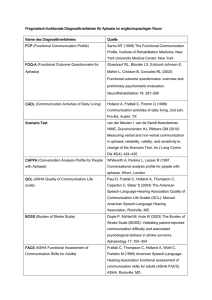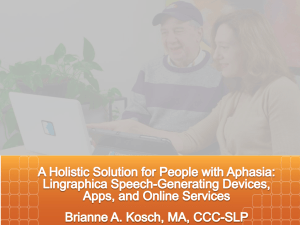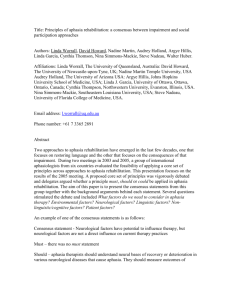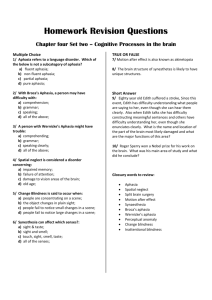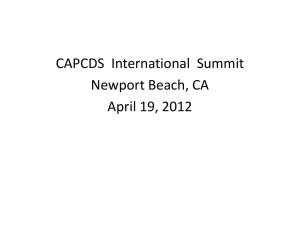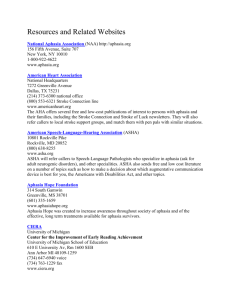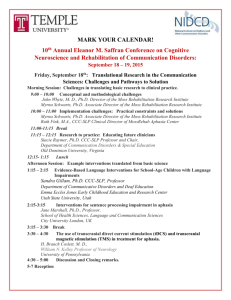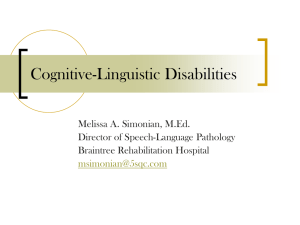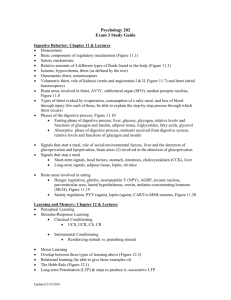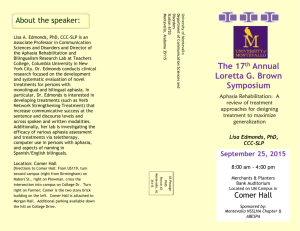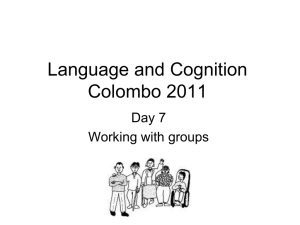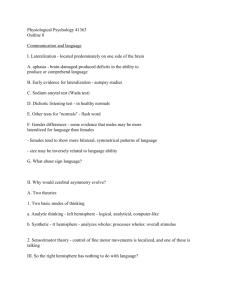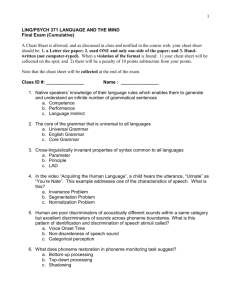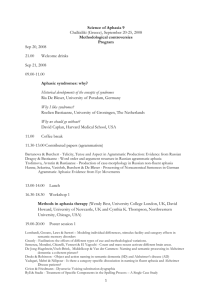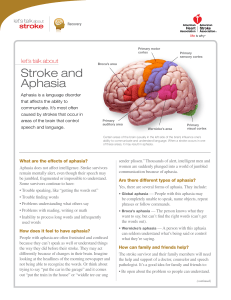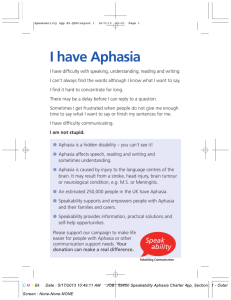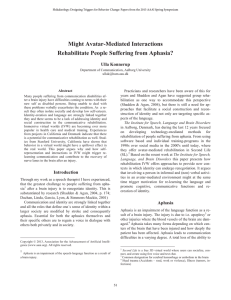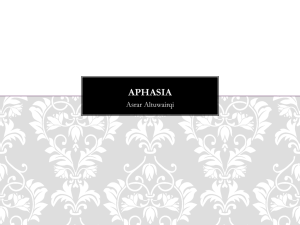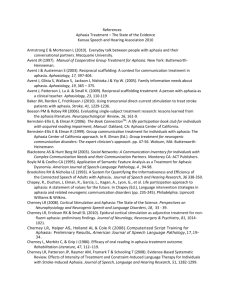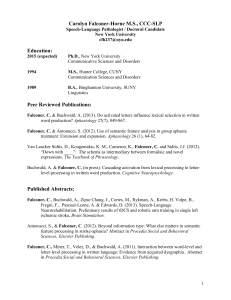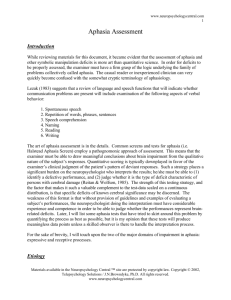ABSTRACT (250 WORDS)
advertisement
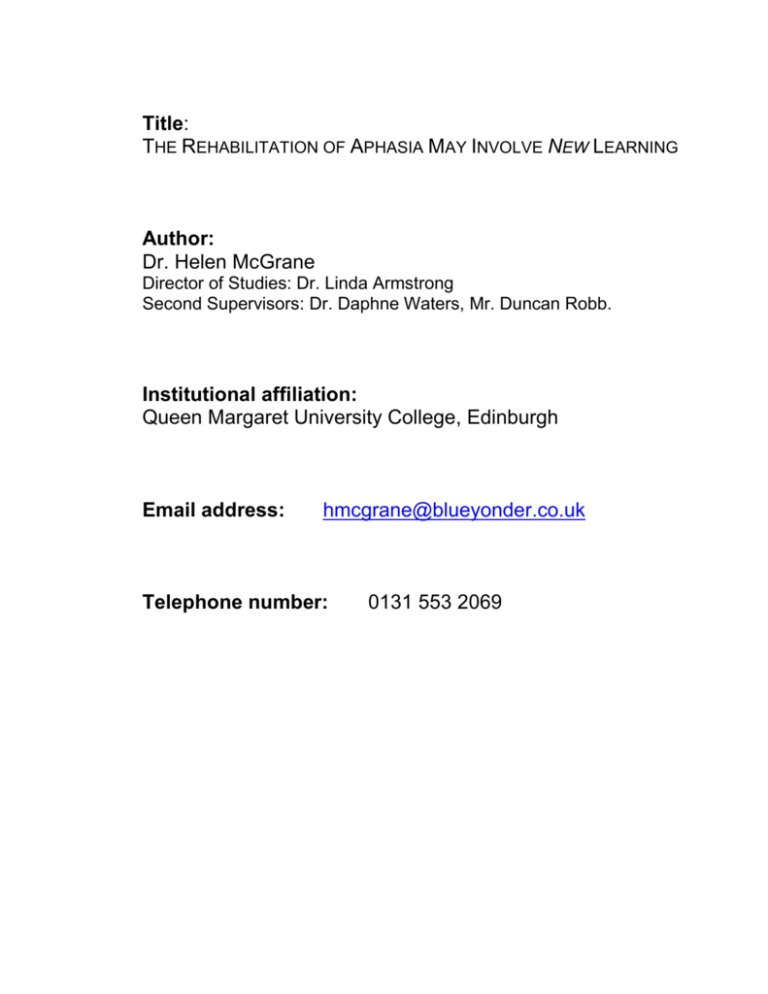
Title: THE REHABILITATION OF APHASIA MAY INVOLVE NEW LEARNING Author: Dr. Helen McGrane Director of Studies: Dr. Linda Armstrong Second Supervisors: Dr. Daphne Waters, Mr. Duncan Robb. Institutional affiliation: Queen Margaret University College, Edinburgh Email address: hmcgrane@blueyonder.co.uk Telephone number: 0131 553 2069 Many people with aphasia retain residual language impairments to varying degrees of severity following rehabilitation. While there are theories/ models of language impairment currently there is no equivalent for rehabilitation that explains the therapeutic process(es) involved in the restoration of the damaged language system. Therefore it is not possible to discern what approaches or tasks would be most successful at restoring particular language functions. The development of such a theory would be a considerable undertaking. A first step however would be to ascertain if rehabilitation facilitates the accessing of information rendered inaccessible due to the impact of the stroke or perhaps it could involve new learning resulting in the creation of new language representations. To address this question it must be demonstrated that adults with aphasia can create new language representations through new learning. Recent studies have indicated that people with post-stroke aphasia can learn associations between familiar words and abstract images, and non-words with familiar objects. What is unknown is whether adults with aphasia could learn non-words with abstract images/ novel meanings i.e. new vocabulary. The main objective of this study was to investigate whether adults with post-stroke aphasia could learn new language representations in the form of new vocabulary. The investigation’s methodology incorporated procedures based on evidence from the literature in order to facilitate and promote optimum learning. The novel stimuli i.e. twenty new word forms with matched new meanings, were created by the researcher. Over a four-day period these novel words were taught to twelve adults (<65 years) who presented with varying degrees of severity of aphasia. The training procedure incorporated learning theory and a cognitive neuropsychological model of language. The immediate and delayed recall of this vocabulary was investigated using a range of assessments to facilitate the capture of new learning. ‘New learning’ was measured not only in terms of the accurate production of the stimuli but also the recognition and knowledge of the word forms and meanings. All participants demonstrated varying abilities for new learning with nine of the twelve participants demonstrating substantial learning of the new vocabulary. The participants’ range of learning ability was analysed in relation to variables such as severity of aphasia, cognitive abilities and pre-morbid factors. The findings have significant clinical relevance in terms of the development of a theory of rehabilitation and in relation to the procedures employed in speech and language therapy. The findings suggest that the rehabilitation process should draw on approaches and concepts of learning. Qualitative data indicated that individuals approached the learning experience in different ways choosing methods most suited to their particular learning styles. Therefore although the same stimuli might be used in rehabilitation, the differing approaches to learning may provide an explanation for the differences found in the recovery of aphasia. This investigation has established that adults with aphasia can learn new language representations in the form of new vocabulary. This strongly suggests that language rehabilitation could incorporate the process of new learning, which has direct implications for speech and language therapy intervention.
